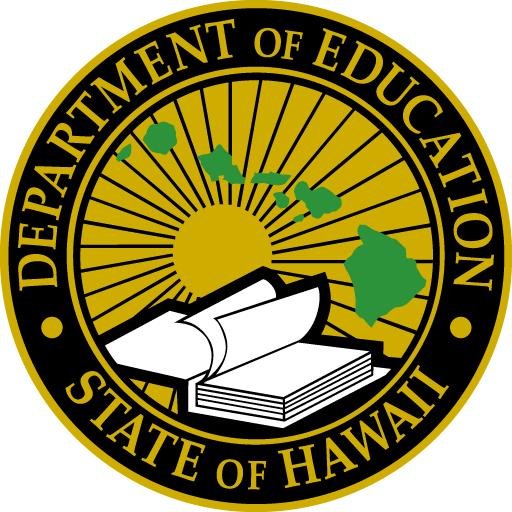Health education supports students’ health, resilience, total well-being and academic success so they may reach their aspirations, from early learning through college, career and citizenship.
Providing students with a high-quality, comprehensive health education equips and empowers them with the skills, knowledge and attitudes to address their current and future health needs and challenges. Health literacy is essential to students’ social, emotional, mental, physical, and cognitive development.
Health literate individuals are able to find, understand and use information and services to inform health-related decisions and actions for themselves and others. This contributes to resilience, well-being, healthy relationships and a positive quality of life as well as prevents and reduces the risk of disease, injury and death.
การศึกษาเรื่องสุขภาพในปัจจุบัน สะท้อนให้เห็นถึงการเติบโตของงานวิจัยที่เน้นย้ำถึง:
- สนับสนุนสุขภาพ ความยืดหยุ่น และความเป็นอยู่ที่ดีโดยรวมของเด็กโดยรวม (เช่น พัฒนาการทางสังคม อารมณ์ จิตใจ ร่างกาย และสติปัญญาของนักเรียน)
- พัฒนาทักษะความรู้ด้านสุขภาพให้สอดคล้องกับมาตรฐานการศึกษาสุขภาพแห่งชาติ
- การสร้างความรู้เชิงการทำงานด้วยข้อมูลที่เกี่ยวข้องและเชิงการทำงานที่สอดคล้องกับหัวข้อความเสี่ยงที่สำคัญ
- การเสริมสร้างความสัมพันธ์กับครอบครัวและชุมชน
- ตอบสนองความต้องการและความสนใจของนักเรียนผ่านประสบการณ์การเรียนรู้แบบโต้ตอบและทางสังคม
- การปลูกฝังทัศนคติ ค่านิยม และความเชื่อที่สนับสนุนพฤติกรรมสุขภาพเชิงบวกผ่านข้อความและสภาพแวดล้อมการเรียนรู้ที่ปลอดภัย ครอบคลุม และเอาใจใส่
การ National Health Education Standards: Achieving Excellence (NHES) are fused on developing students’ health literacy skills to proficiency within and across grade levels:
- มาตรฐานที่ 1: การเข้าใจแนวคิด – Students will comprehend concepts related to health promotion and disease prevention to enhance health.
- มาตรฐานที่ 2: การวิเคราะห์อิทธิพล – Students will analyze the influence of family, peers, culture, media, technology and other factors on health behavior.
- มาตรฐานที่ 3: การเข้าถึงข้อมูล ผลิตภัณฑ์ และบริการ – Students will demonstrate the ability to access valid information, products and services.
- มาตรฐานที่ 4 การสื่อสารระหว่างบุคคล – Students will demonstrate the ability to use interpersonal communication skills to enhance health and avoid or reduce health risks.
- มาตรฐานที่ 5 การตัดสินใจ – Students will demonstrate the ability to use decision-making skills to enhance health.
- มาตรฐานที่ 6: การตั้งเป้าหมาย – Students will demonstrate the ability to use goal-setting skills to enhance health.
- มาตรฐานที่ 7: การจัดการตนเอง – Students will demonstrate the ability to practice health-enhancing behaviors and avoid or reduce health risks.
- มาตรฐานที่ 8: การสนับสนุน – Students will demonstrate the ability to advocate for personal, family and community health.
While the primary focus of Health Education is the development of health skills, these skills must be addressed in conjunction with functional information in the context of priority risk topics. Standards-based health education must be age and developmentally appropriate, medically accurate and provide factual information in all priority risk topics:
- Mental and Emotional Health.
- Healthy Eating and Physical Activity.
- Personal Health and Wellness.
- Safety (Unintentional Injury Prevention).
- Violence Prevention.
- Tobacco Use Prevention.
- Alcohol and Other Drug Use Prevention.
- Sexual Health and Responsibility.
Note: Health Education in prekindergarten is aligned to the Hawai‘i Early Learning and Development Standards (HELDS).
Course Requirements for Health Education
การศึกษาด้านสุขภาพเป็นสิ่งที่จำเป็นในทุกระดับประถมศึกษา
Middle/intermediate schools must offer courses that allow all students to meet Hawaiʻi՚s Health Education standards and performance indicators for Grades 6-8. One semester (0.5 credits; 60 hours) of Health Education in each middle/intermediate school grade is strongly recommended but not required.
In high school, a one-semester course (0.5 credits; 60 hours) in Health Education is required for graduation.
A variety of Health specialized elective courses (e.g., Peer Education) are available at the secondary school level.
สำหรับการเลื่อนชั้นมัธยมต้นและข้อกำหนดการสำเร็จการศึกษาระดับมัธยมปลาย โปรดดูที่ Board Policy 105-1 Academic Program, Board Policy 102-9 Middle Level Education Promotion Policy, และ Board Policy 102-15 High School Graduation Requirements and Commencement.
Wellness Guidelines for Health Education and Nutrition Promotion
Health education and nutrition promotion provide the instructional foundation that is necessary to prepare students to make lifelong healthy decisions and practice healthy behaviors. This component area of the Wellness Guidelines includes school-wide promotion of nutritious meals and snacks as well as quality health education. Click for more information about our แนวทางการดูแลสุขภาพ.
Guidelines for health education and nutrition promotion are organized around four key components:
- เนื้อหาการเรียนการสอนของชั้นเรียนการศึกษาด้านสุขภาพมุ่งเน้นไปที่ความรู้และทักษะที่สนับสนุนการกินอาหารที่ดีต่อสุขภาพและสอดคล้องกับมาตรฐาน HIDOE สำหรับการศึกษาด้านสุขภาพ
- จัดการศึกษาด้านสุขภาพให้กับนักเรียนในระดับประถมศึกษาอย่างน้อย 45 นาทีต่อสัปดาห์ และระดับมัธยมศึกษาอย่างน้อย 200 นาทีต่อสัปดาห์
- Nutrition education includes culturally relevant activities that are ‘āina-based and hands-on, such as food preparation, taste-testing, farm visits and school gardens.
- การตลาดอาหารและเครื่องดื่มในโรงเรียนทั้งหมดต้องเป็นไปตาม แนวทางโภชนาการซึ่งรวมถึงแต่ไม่จำกัดเพียงสิ่งพิมพ์ของโรงเรียน ภายนอกเครื่องจำหน่ายสินค้า โปสเตอร์ แบนเนอร์ โทรทัศน์ในโรงเรียน และกระดานคะแนน
วิธีการที่โรงเรียนส่งเสริมโภชนาการที่ดี
- ข้อความเชิงบวกเกี่ยวกับอาหารที่มีคุณค่าทางโภชนาการถูกจัดแสดงไว้ในมหาวิทยาลัย
- เครื่องจำหน่ายสินค้าอัตโนมัติสำหรับนักเรียนจะมีแต่เพียงน้ำเท่านั้น
- อาหารกลางวันที่โรงเรียนจะปรุงเองตั้งแต่ต้นให้มากที่สุด รวมไปถึงขนมปังโฮลเกรนอบสดด้วย
- ไม่มีอาหารใดประกอบด้วยไขมันทรานส์
- นักเรียนจะมีน้ำดื่มฟรีไว้บริการในช่วงเวลาอาหาร
- เชิญชั้นเรียนไปเยี่ยมชมห้องครัวโรงอาหารเพื่อเรียนรู้วิธีการเตรียมอาหารเพื่อสุขภาพ
- ส่งเสริมอาหารเช้า อาหารกลางวัน และของว่างที่ดีต่อสุขภาพให้กับนักเรียนและครอบครัวของพวกเขา
- สวนการเรียนรู้จะสาธิตวิธีการเพาะปลูกอาหาร
Want To Learn More About Health Education?
Additional information may be found in the following resources:
- National Health Education Standards in Hawai‘i
- การออกแบบการเรียนรู้เพื่อสุขภาพ
- Why Health Education Matters
- Health Education Standards and Topics Overview
- Healthy Behavior Outcomes
- Reviewing Instructional Materials for Health Education
ข้อมูลติดต่อ
โครงการอบรมสุขศึกษา
Phone: (808) 784-6423
อีเมล: [email protected]
ทรัพยากร
- National Health Education Standards in Hawai’i
- Reviewing Instructional Materials for Health Education
- แนวทางการดูแลสุขภาพ
- 2022 Hawaiʻi School Health Profiles – Highlights Report
- แนวทางการดูแลสุขภาพของ HIDOE
- HIDOE Sexual Health Education
- การออกแบบการเรียนรู้เพื่อสุขภาพ
- คุณมีความสำคัญ! แหล่งข้อมูลด้านสุขภาพ
- Hawai‘i Youth Risk Behavior Survey
- กรมอนามัยโรงเรียน
- CDC Healthy Schools
- CDC Adolescent and School Health
- Hawai‘i Island School Garden Network
- Hawai‘i Early Learning and Development Standards
- ทรัพยากรของสมาคมแห่งชาติเพื่อการศึกษาเด็กเล็ก (NAEYC)
- มาตรฐานโปรแกรมของสมาคมผู้ประกอบวิชาชีพโปรแกรมแห่งชาติ (NAPPP)
